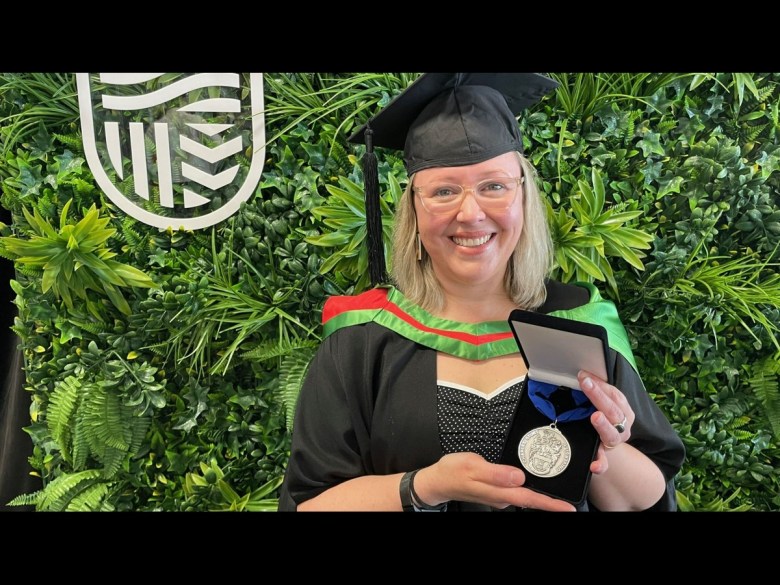Returning to study as a mature age student was not originally on the cards for Michelle Hastie – but sometimes things are just meant to be.
In Hastie’s case, having taught secondary students for 12 years, it was the subject matter that swayed her.
“I had wanted to study… inclusive ed for probably almost ten years, just because I was seeing more and more kids in the classroom who didn’t neatly fit the mould, who were having difficulties, who were struggling – some quite significantly and others in less pronounced ways,” she recalled.
“I just felt like I needed more training. I needed a better understanding of how to support these kids and how to support these families in terms of helping with their learning journey, whatever that was going to look like for that particular kid.”
At the same time as Hastie was making the decision to return to study, her professional life as a teacher was colliding with the personal, as family members received diagnoses for learning and language disabilities.
As someone who had always been interested in understanding the science of learning and neurodiverse brains, Hastie – who also has lived experience of physical disability stemming from an autoimmune disease – felt that her path was set, and she went back to uni to study a Master of Inclusive Education (Advanced Practice) at Charles Sturt University.
Now equipped with this extra qualification, she says she’s been considering how to use it to support other teachers. She’s begun by starting conversations with colleagues to shift their perspective and show them how accommodating children with different abilities can make a positive impact on the whole classroom group.
“If you can set up systems and routines and procedures that are a little bit different perhaps to the way that you’re used to doing things, it’s going to be more sustainable for you long-term, and it’s also going to be better for the kids,” she explained.
Hastie has become a sort of sounding board for other teachers, acting as a “walking resource” that can provide informed suggestions on new tactics to try in the classroom to help include and support all children.
“I feel like that is the most empowering thing I can do… I feel like I have the most success when I can work with teachers. We all know teachers are pretty burnt out a lot of the time, and often quite overwhelmed,” she explained.
Hastie’s efforts as a student herself were rewarded with the highest honour that Charles Sturt University can bestow: the Postgraduate University Medal.
The medal is awarded to students graduating from a Charles Sturt Masters course with a GPA of 6.75 or higher who have completed at least 64 points of their studies with the University.
She said it was nice to see a recognition of her hard work, and to feel that the work she does in the classroom is valuable.
“I love the ways in which I can help students, parents and teachers in their individual education journeys,” she said.

